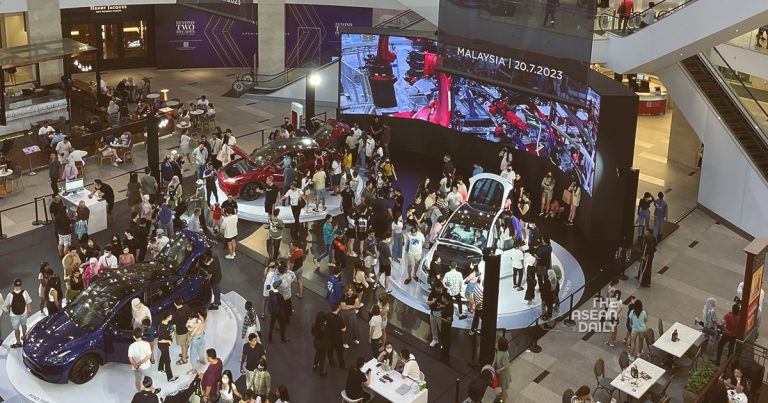22-5-2024 (KUALA LUMPUR) Industry experts predict a stagnation in the demand for electric vehicles (EVs) in Malaysia over the next year or so, as the wealthy have already made their purchases, while the majority grapple with high prices and persistent anxieties over limited battery charging infrastructure, rendering the switch to EVs less compelling.
Despite a bumper year for the Malaysian car market in 2023, with total sales surging nearly 11 percent annually, EVs accounted for a mere 10,159 units, barely exceeding 1 percent of the nearly 800,000 new vehicles that hit the roads, according to data from the Malaysian Automotive Association (MAA).
“Sales have hit stagnation,” said David Tiah, a senior engineer with Smart Malaysia, one of the numerous carmakers showcasing their EV offerings at the five-day Malaysia Autoshow 2024, which commenced on Wednesday.
“The main thing for consumers would be affordable EVs. A lot of people say they would buy an EV if it’s within 70,000 ringgit to 80,000 ringgit ($14,941 to $17,066). Anything over 100,000 ringgit is just too pricey for them.”
Prime Minister Anwar Ibrahim’s administration has set an ambitious target of transitioning 15 percent of all vehicles on Malaysian roads to EVs by 2030, as part of a broader strategy to lure marquee brands like Tesla to establish production facilities in the country.
However, the costs associated with converting to an EV remain a stumbling block across the region.
Major EV players in China, the world’s largest EV market, have experienced a sharp decline in sales during the first quarter of this year, with deliveries plummeting 31 percent annually to 1.76 million units for pure electric and plug-in hybrids, according to the China Passenger Car Association (CPCA).
The slide triggered a price war in China, spearheaded by BYD – the country’s largest EV maker – after it reported a 43 percent decline in first-quarter sales this year. BYD slashed prices of nearly all its cars by between 5 and 20 percent since mid-February, prompting broad price cuts among competitors, averaging around 10 percent for 50 models across various brands, as per a Goldman Sachs report in April.
In Thailand, Southeast Asia’s automotive hub, EV adoption surged by 684 percent in 2023, with sales totaling 78,314 units compared to 9,729 units the previous year, according to government data. However, this swift growth was heavily reliant on generous subsidies and reduced levies for passenger EVs and remains a minuscule percentage of the 44 million total vehicles registered in the kingdom.
Smart Malaysia’s Tiah acknowledged that most EVs in the Malaysian market remain in the premium segment. The company’s #1 – the flagship EV offering from the Mercedes-Benz and China’s Geely joint venture – starts at 169,000 ringgit (US$36,266) and primarily caters to car enthusiasts.
He emphasized the government’s role in ramping up education to convince the public of the benefits of shifting to EVs, such as lower tailpipe pollution in cities, as more affordable options eventually hit the market.
“You can’t sell something to people that they don’t know about … their mindset is conservative, they like what they already have,” Tiah said.
The premium nature of EVs currently on the market also narrows the client base to a small, albeit wealthy segment typically seeking a second or third car, according to a representative of a Chinese marque who requested anonymity as they were not authorized to speak to the media.
Sufficient charging infrastructure must also be established to address “range anxiety” – the worry that the car will not have adequate charge to reach its destination.
“It’s a chicken-and-egg issue, whether you want to build your infrastructure based on demand or use infrastructure to boost demand,” the representative said. “It really depends on government incentives, a lot of push and pull by both government and industry players.”
Last year, the government set a target for Perodua, Malaysia’s largest domestic carmaker by sales volume, and fellow local marque Proton, to introduce home-grown EVs by 2025, to help achieve Prime Minister Anwar’s coveted 15 percent EV penetration by 2030.
“The moment we bring out our car, I think the others will bring down their prices, so people will start to buy,” said Zainal Abidin Ahmad, Perodua’s chief executive, revealing that the development of their EV is 60 percent in progress and expected to sell for below 100,000 ringgit once it goes to market.




